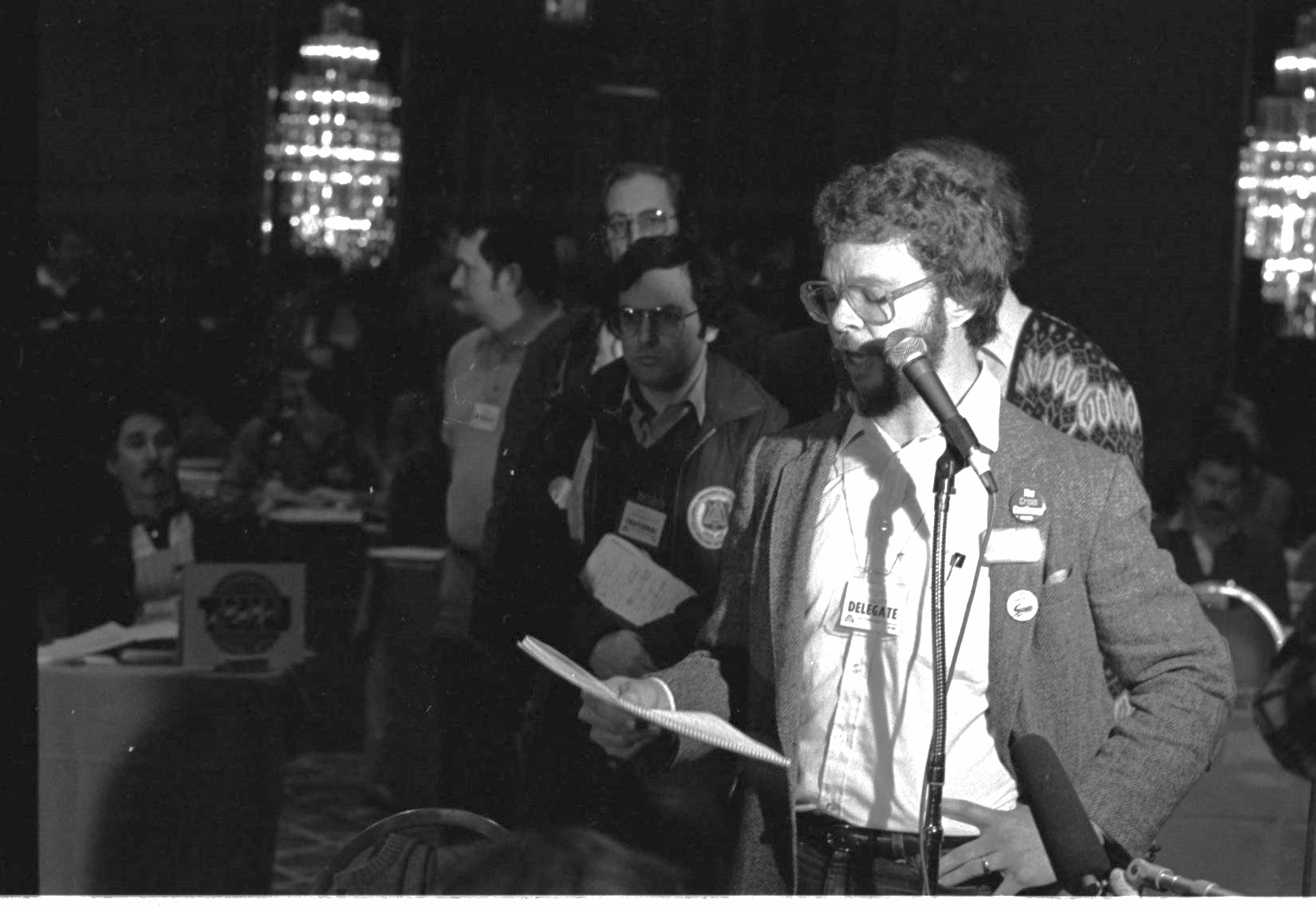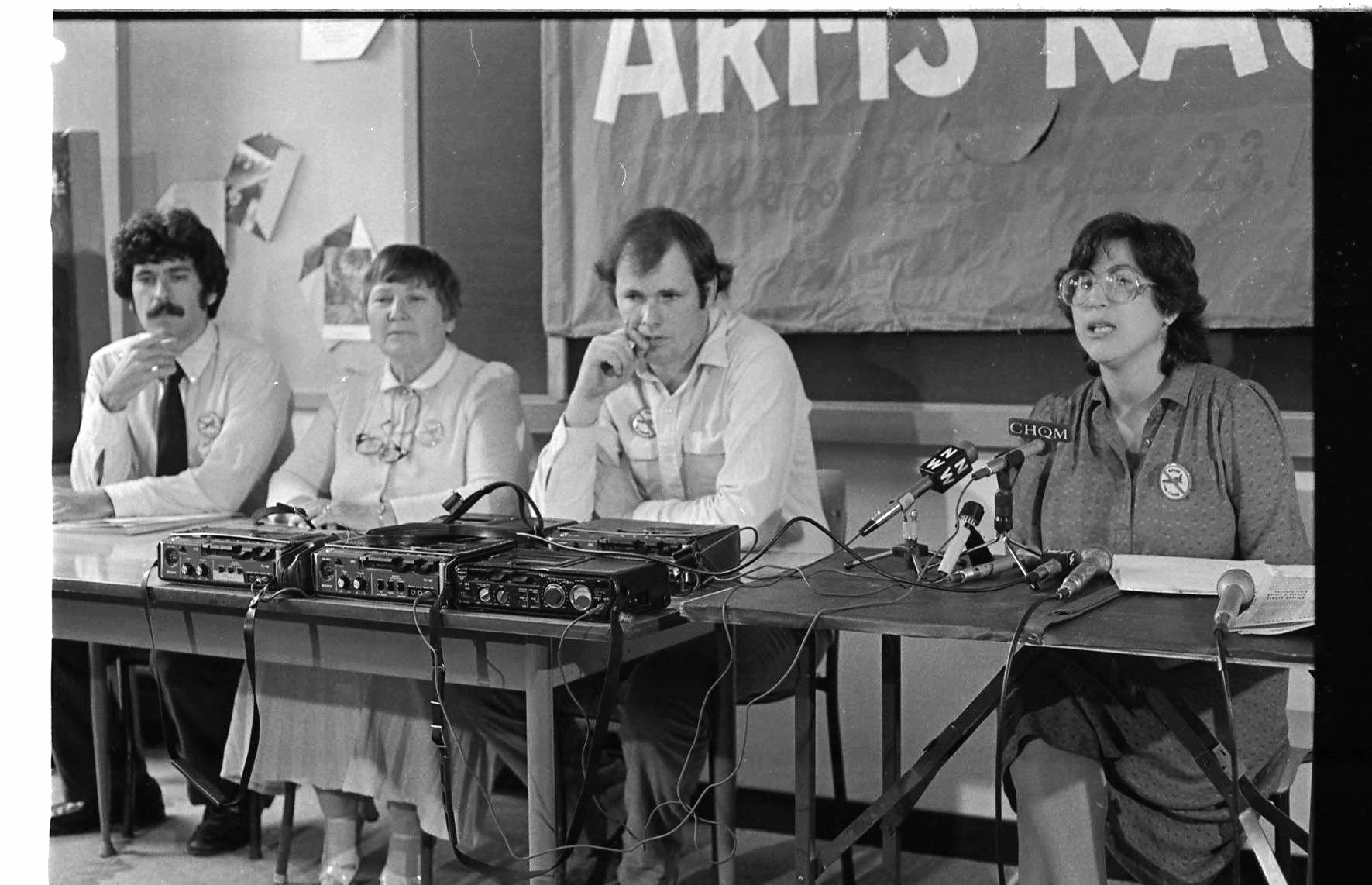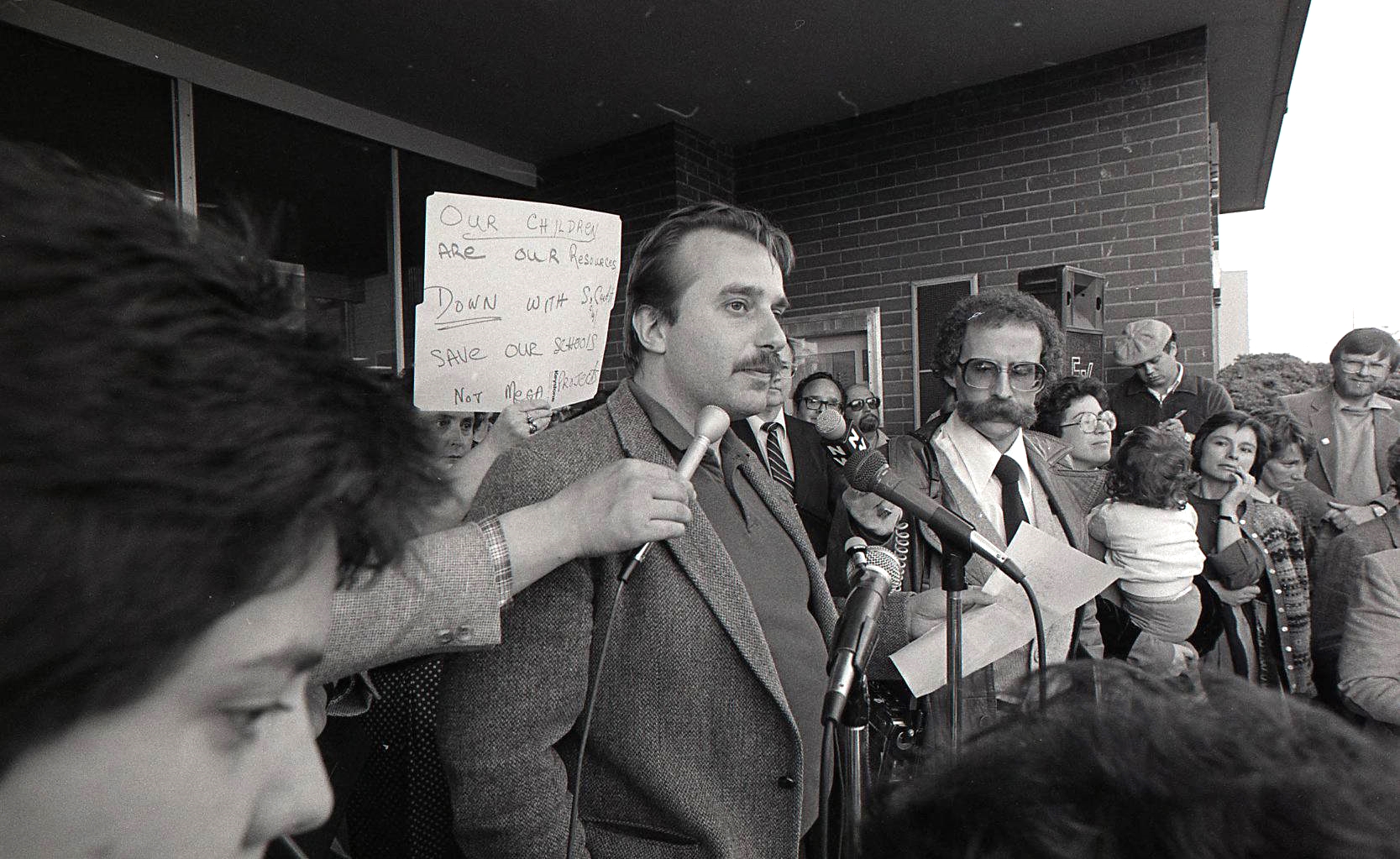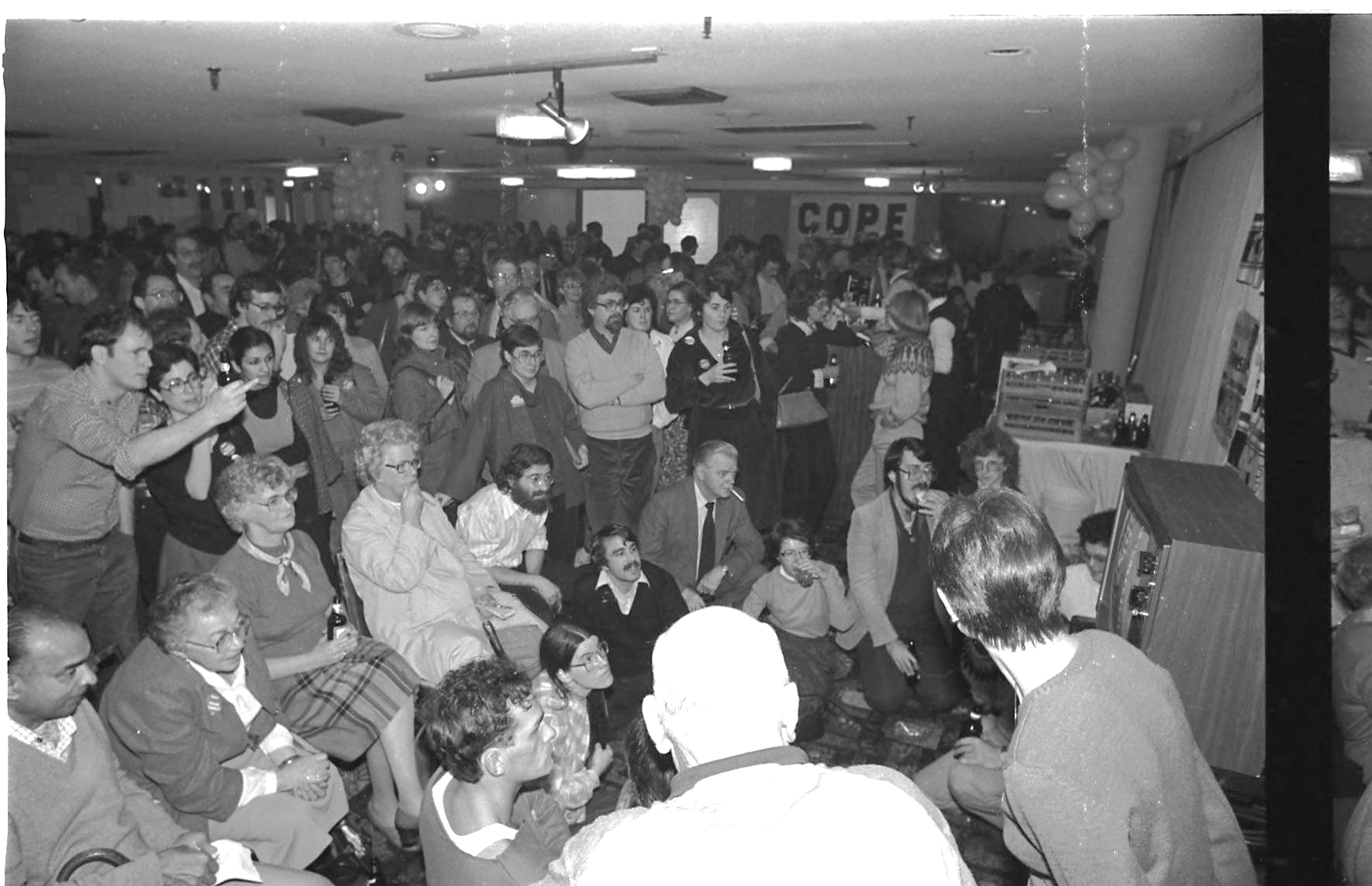Two years in, it’s unclear whether CASL has actually been effective at reducing spam in Canada. But the new law has created an email “chill” for many non-profit organizations – limiting their digital activities for fear of breaking the rules. CASL is still not well understood, and many organizations are unaware of, or under-informed about, the rules resulting in an overly cautious approach that can negatively impact fundraising and member engagement.
Read moreLabour Board dismisses raid of health unions by BC Nurses
In a decision issued on April 11, 2016, the raiding activities of the BC Nurses suffered a set-back. About 5 years ago, the then British Columbia Nurses Union was expelled from the Canadian Labour Congress and the BC Federation of Labour for its raiding campaigns against other health unions in the province. This came on the heels of BCN’s successful application at the Labour Relations Board to raid some 6500 licensed practical nurses from their traditional unions, the Hospital Employee’s Union and the BCGEU.
Unfortunately, the ultimate sanction of expulsion from the central labour body has not dissuaded the BCN from its raiding activities. Its latest efforts have been aimed at signing up psychologists and psychometrists who are members of the Health Sciences Association or the Professional Employees Association. BCN applied to the Labour Relations Board to be certified as their representative in late 2015.
Let’s hope that with this setback, the leadership of the BCN will decide to redirect their efforts and resources towards advocating for better healthcare and better working conditions for their members and all healthcare workers, rather than attacking other unions. And let’s hope that nurses themselves will call upon their leadership to do just that.
Read moreA positive development in the law of protest and picketing injunctions
British Columbia Chief Justice Hinkson has rejected the provincial government’s application for an injunction to shut down the homeless tent city on the lawn of the Victoria court house. He made several rulings that will be important in future trespassing injunction cases. The decision is posted here. It represents a triumph of empathy for people who live in poverty and are given no reasonable alternatives but to be chased from place to place.
Perhaps most important in its legal impact, he rejected the province’s argument that the normal hurdles an injunction application has to clear don’t apply where interference with rights to land are involved. Employers often raise this argument in applications for injunctions to prohibit picketing on their property by employees. Mr. Justice Hinkson ruled that the normal legal rules apply where Charter rights are in issue, even if the applicant is a landowner seeking to remove alleged trespassers.
Read moreA trip down memory lane...
Normally we try to blog about serious legal issues because, well, that's kind of our thing. Serious legal issues. But today I'm going to blog about the 1980s, when AQW's most senior lawyers were budding young activists with shining ideals and great glasses - and AQW's most junior lawyer was a tot crammed somewhat unsafely into a single-kid stroller shared with her big sister, who was six years old and clearly capable of just walking. But I digress...
A friend tipped us off to the existence of an online archive of photographs from the Pacific Tribune, Vancouver's labour newspaper back in the day. And look at the gems we dug up!
Not only are these pictures fun reminders of an exciting time in BC politics (and 80s eyewear trends), they are testaments to our firm's long history of commitment to progressive causes. We all cut our teeth as activists - in the labour, peace, anti-poverty, tenants' rights, and student movements - and our fierce advocacy as lawyers is fuelled and instructed by those early days.
Facebook and BC privacy rights: the Supreme Court of Canada decides to weigh in
By Rachel H Roy
Last week the Supreme Court of Canada decided to hear an appeal of a decision involving a B.C. woman and Facebook. Debbie Douez sued Facebook under the B.C. Privacy Act for using her name and profile picture in sponsored stories without her permission.
The B.C. Privacy Act is distinct from the province’s Personal Information Protection Act or Freedom of Information and Protection of Privacy Act and has existed for far longer. The Privacy Act gives British Columbians the right to sue for damages when their privacy has been unlawfully violated. Under the Privacy Act, people have been awarded damages ranging from $5,000 to $35,000 for breach of their privacy rights.
The Privacy Act specifically restricts the unauthorized use of the name or portrait of a person for the purpose of advertising without that person’s consent. Ms. Douez sued Facebook on the basis that their use of her name and profile picture in sponsored stories violated the Act. She also initiated a class action on behalf of other B.C. residents. The B.C. Court of Appeal essentially determined that she must sue Facebook in California instead of British Columbia and stayed her claim and the class action.
The case before the Supreme Court will focus on underlying legal issues related to the enforceability of California-based Facebook’s terms of use vis-à-vis British Columbia’s Privacy Act. However, the decision will have broader policy implications around the ability to pursue the benefits of protective statues enabled in the public interest here in B.C. courts, rather than in foreign jurisdictions as a result of accepting a technology provider’s terms of use.
The Supreme Court’s decision will deal with the issue of clashes between local legislation and the terms of use of foreign technology providers. The resulting decision may also have implications for other similar app or platform providers like Google, Uber, and others.
As a lawyer – and a privacy enthusiast - I‘ll be watching the outcome of this case very closely.
Are your members doing too much under essential services orders?
Each time the Supreme Court of Canada issues a new ruling, it takes some time for the effects to ripple out through tribunals and courts across the country. One change we're still waiting to see here in BC after the 2015 SFL decision is a restriction on the amount and type of work performed by essential service workers pursuant to the BC LRB's standard Global Order.
Read moreB.C. government off-side in changing the rules for amateur athletes?
As of three days ago, the Employment Standards Act no longer applies to players, entitled to scholarships, who play on major junior ice hockey teams in British Columbia. The Employment Standards Act contains protective provisions that set out minimum wages, maximum hours of work, overtime eligibility and so on.
Interestingly, there are currently two class action lawsuits pending in Alberta and Quebec against the Canadian Hockey League and its teams on behalf of junior players alleging that the League conspired to force young players into signing contracts that breached minimum wage laws.
Read moreTime to shine the light on shadow flipping
A recent Globe & Mail investigative report revealed that some BC realtors may be driving up house prices by speculating on properties in whose listings they are engaged, or “shadow flipping”.
The provincial government has left it to the Real Estate Council of British Columbia to investigate, but early indications from that organization are not encouraging. Under increasing public pressure, the Premier has suggested that the province will intervene if the Council does not do a satisfactory job.
That is not good enough.
Read moreDamages for Injury to Dignity in Human Rights Cases
Clients thinking about filing a human rights complaint, or on the receiving end of one, generally want the answer to that one, bottom-line question: how much is this claim worth? How much am I going to get, or going to have to pay?
When the claim deals with specific losses like wages or medical costs, that number can be calculated. But nearly every claim also includes a component of damages for "injury to dignity, feelings and self respect or any of them". That's a very different question: how much are hurt feelings worth?
Read moreImpact of Election Act changes for by-election voters and volunteers
The by-elections in Coquitlam-Burke Mountain and Vancouver-Mount Pleasant are the first provincial elections to be held since the BC Election Act was amended last May. As advance voting starts this weekend, now is a good time to review how these changes will impact voters and volunteers. As many of us saw during the recent federal election, legislative amendments can affect voting procedures on the ground in both positive and negative ways: sometimes these result in a more efficient use of volunteers, while other times these changes may lead to longer waiting times for voters on voting days.
Practical impact of the recent Election Act changes:
Read moreSupreme Court Rulings Squeeze Utility Workers
Once every decade or so, the Supreme Court of Canada issues a decision in the field of utility regulation. These are invariably landmark cases that have a huge impact on the regulation of energy and other utilities across the country, and the tens of billions of dollars that these public and private companies collect from Canadian customers each year. These decisions are very important not only for the companies and their customers, but also for their employees.
Two Supreme Court rulings released today are about utility workers’ pay and benefits. One was about compensation costs in the collective agreement covering Ontario nuclear plant employees, and the other was about pension cost-of-living adjustments at ATCO, a large private utility in Alberta.
Read moreIs the Conservative Party violating the Canada Elections Act?
In response to media stories reporting that the Conservative Party has retained Australian campaign manager Lynton Crosby to boost their flagging fortunes, we wrote to Canada’s Chief Election Officer today asking for an immediate investigation of this apparent violation of the Canada Elections Act. (See the CKNW story here.)
Read moreImportant expansions to the law of picketing in BC
The Labour Relations Board just released two decisions on COPE 378's applications for picketing. One was granted and the other was refused, but both represent significant expansions to the law of picketing in BC.
The context for these decisions is the BCAA lockout:
Read moreJusticeTrans app has launched
Check out JusticeTrans, an app that provides legal information and resources about transgender rights, at www.justicetrans.com and at the iTunes App Store and Google Play.
We're proud to be listed as a trans-positive legal service provider with JusticeTrans, and pleased to offer services to the trans community on any human rights or employment issues.
BC Liberals "sweeten the deal" for Petronas at all of our expense
Jim spoke with CFAX Radio's Ian Jessop on Tuesday about the BC Liberal government's "absolutely ridiculous" deal with Petronas. The Liberals are trying to bind BC into a 25-year deal that would see extremely limited benefits for British Columbians and big advantages to the Malaysian oil and gas company.
Have a listen here. Jim's segment starts at about the 6:50 mark. Skip to 27:45 to hear a short discussion on how First Nations' opposition may impact the proposed deal.
Damages awarded against employer who uses replacement workers
In the course of its four-month-long lockout of CUPE Local 7000 members, Southern Railway kept a fraction of its trains running by using excluded managers as replacement workers. But a railway can’t run unless its track is maintained. Track maintenance is work that CUPE members do and not many managers are qualified to operate the machinery that’s involved. On January 23, 2015 Southern Rail brought in a contractor, A&B Rail Services, to replace a number of railway ties at a switch area on Annacis Island.
Read moreLRB remedy where Employer delays arbitration
Here’s a very useful recent decision of the Labour Relations Board providing a remedy to stalled grievance proceedings, using s. 88(b) to order that the dispute go directly to arbitration and skip the earlier steps under the collective agreement.
Read moreA Map to the Oil Price Roller-Coaster
What’s in store for oil prices?
Here’s the basic tug-of-war of forces that will shape the trajectory of oil prices over the next two or three years.
Oil prices have plummeted because production has risen sharply in recent years, particularly because of the American shale oil boom which has made the US a net exporter of oil.
Read moreRight to Strike Protected by the Charter
Today the Supreme Court of Canada issued the decision in the Saskatchewan Federation of Labour case on the right to strike---and yes, it is constitutionally protected.
The case can be found at the SCC website at http://scc-csc.lexum.com/scc-csc/scc-csc/en/item/14610/index.do.
My favourite quote from the majority 7 to 2 decision written by Madam Justice Abella is this:
No discrimination on the basis of family status
I had occasion to participate on a panel at the Bargaining in the Broader Public Sector 2014 Conference organized by Lancaster House. The panel, “What’s on the Bargaining Table: Emerging Issues, Creative Solutions”, canvassed a number of topics including pensions, health and welfare benefits and work-life balance. The obligation to accommodate employees on the basis of family status came up under the topic of work-life balance. The leading case in British Columbia is Health Sciences Association v.Campbell River and North Island Transition Society available on Canlii at:
Read more











